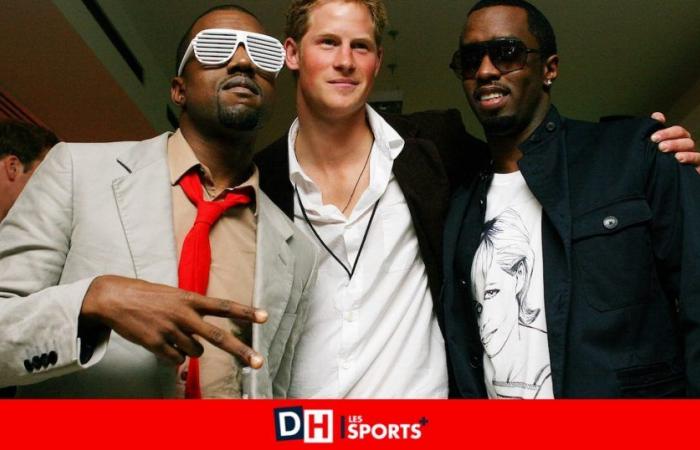
Some 120 victims accuse the artist and “more than 3,285 people” are said to have called a helpline set up by a law firm, claiming to be victims or witnesses of an attack on the part of the ex-mogul of the hip-hop.
P.Diddy affair: Prince Harry, Usher, David Guetta… All these targeted names circulating on social networks
“This is an important matter that we intend to pursue aggressively, the Texas-based defense attorney said in a statement, asking for help from the music and entertainment world. If you have been a victim or witness to this scandalous behavior, I ask you to please come forward.”.
A turning point in the music industry and a scandal on a par with the Weinstein earthquake, which could mark a turning point in the liberation of women’s voices in this environment. And in the case of the very influential New York hip-hop rapper, we find several traits common to these influential stars who have fallen for sexual assault and breach of trust.
guillementThis habit of no longer being contradicted generates a feeling of omnipotence.
Justin Bieber, Beyoncé, Jay-Z, Leonardo DiCaprio… When the P. Diddy affair shakes up the celebrity sphere
“The impact of power and money on this feeling of omnipotence is something very present and which often comes up in these casesexplains Dr Caroline Depuydt, psychiatrist and head of department at the Fond’Roy clinic. Fame and stardom can make you lose your sense of reality and behind this lies a powerful psychological mechanism: when you become a star, no one says “no” to you anymore. We adore you, we comply with your wishes, and this makes you lose your sense of reality. This habit of no longer being contradicted therefore generates a feeling of omnipotence. However, we have all faced this feeling during childhood. Children all go through this phase where they don’t like being told “no”, but they learn, thanks in particular to their parents, to accept limits. These limits are necessary to calm this feeling of omnipotence. However, when you acquire the status of an international star, these limits gradually disappear. At some point, everyone says “yes” to you. People no longer dare to say “no” for fear of repercussions and a vicious circle sets in.”.
“Impulsivity as a common characteristic”
And very often, sexual abuse is linked to this feeling of omnipotence which obviously cannot excuse everything. Most cases of rape or incest are even motivated by this need for domination, as we have seen with the different waves of #MeToo in the media, cinema, politics, etc. Because it is not only a question of satisfying a sexual urge, it is a question of satisfying a need for power over the other, especially when this “other” is fragile and vulnerable.
More than 100 victims accuse American rapper P. Diddy of sexual assault
The addition of drugs to this equation is also an aggravating factor; they further erase the boundaries between consent and refusal, creating an environment where no barriers exist.
“We end up witnessing inhuman behavior, horrible acts, continues the deputy medical director of Epsylon. And it is clear that sexual abusers often have this common trait, this need for power is even omnipresent even if not everyone abuses it. If some have clear limits for others, this is the only way to build themselves. We also find impulsivity, a cerebral and psychological characteristic that can be more or less well controlled. Some adults, due to flaws in their development, are unable to slow down and take the plunge. This acting out, even if it is not pathological in itself, reveals an intense need to satisfy one’s power, to feel loved. In some people, the ability to control themselves is less, and this makes acting out more likely.”.
In the case of the American rapper, we notice a form of repeated and trivialized violence accompanied, as is often the case, by a law of silence in the community and its unbearable impunity. His ex-partner for ten years, the RnB singer Cassandra Ventura, accuses him, for example, of having drugged and raped her or even forced her to have filmed sexual relations with male prostitutes.
American rapper P. Diddy, accused of sexual assault, was arrested
Another woman had filed an anonymous complaint for kidnapping and rape of a minor in 2003. Her former producer claims to have also been attacked, drugged and raped. For decades, he abused, threatened and coerced women into fulfilling his sexual desires, while hiding his actions and protecting his reputation.
It must be said that minimizing actions is a common trait among sexual abusers. “Denial is common, and it is reinforced by the rape culture present in our society, indicates this Brussels psychiatrist. We often excuse these behaviors by arguing that women provoke or that men have irrepressible impulses. This culture makes it possible to minimize serious acts. We can also observe a group effect, as in the case of the Maza case, where only one or two accused admitted their actions. The group tends to minimize the seriousness of the facts, reinforcing this culture which trivializes the unacceptable. And in this environment, the group effect is very powerful“.





